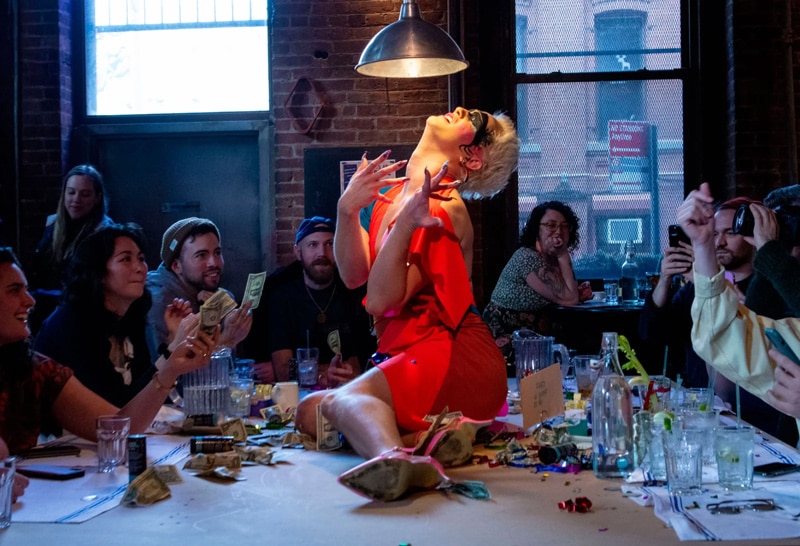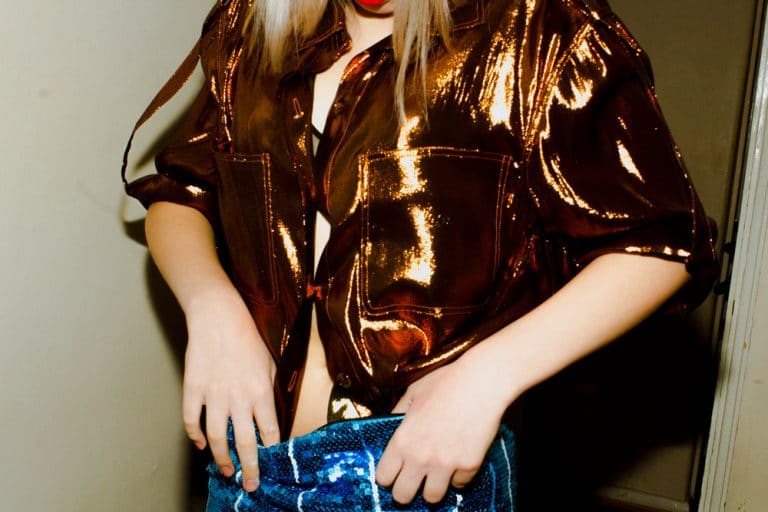The coronavirus outbreak sees LGBTQ and artist communities in New York City stepping up to help their members
In the midst of the COVID-19 outbreak, communities around New York City have stepped up to fend for their members through fundraisers, online content and sharing information about community resources.
Over the last couple of weeks, New York City, much like the rest of the world, saw its economic activity being paralysed by tightening regulations in response to the COVID-19 outbreak. Hundreds of thousands of people have lost their sources of income in an instant. In the midst of this unfolding health and economic crisis, communities around the city have stepped up to fend for their members. This has been visible in the artist and queer communities, as they strive to deal both with the practical and financial difficulties arising from the crisis as well as the emotional and mental challenges associated with it.
Following the initial announcements of shutdowns and event cancellations were countless emails and posts about fundraisers launched by businesses and venues trying to support their staff and distribute information about various community resources in their area. Artists and creatives have also begun uploading content from the confines of their homes—meditating on the drastic changes in their daily lives, expressing their fears about the uncertainties ahead and sharing their talents with quarantined viewers.
Nowadays, a Brooklyn nightclub and community space, began live-streaming DJ sets, educational sessions and talks every night. “Last night I went to Nowadays for the stream and sat on the couch by myself away from other people… and I was able to all of a sudden relax in a way that was so necessary for me to relax. And I feel like that’s an important thing to bring to people right now,” said Justin Carter, co-founder and resident DJ at Nowadays. “There’s also a chat room,” he added, “so people can log on to our website and watch the stream that’s going on and then get in the chat room and talk to each other, and have some semblance of the connection they can get being at the place.”
But like many business owners in his industry and beyond, Carter must now figure out a way to keep his business afloat and weather a storm that has no end in sight. To that end, the Nowadays team started a Patreon campaign, asking its community members for whatever support they can give. “I feel a great responsibility to all the people that work at Nowadays,” Carter added, referencing a Nowadays Staff Help Venmo account it opened to help support the club’s workers who have lost their livelihoods for the foreseeable future.
This type of outreach has also been visible in New York City’s queer community, as LGBTQ people took to social media and encouraged their followers to support one another. Through countless posts, tweets, and stories, queer people have been sharing one another’s Venmo accounts, promoting fundraisers and petitions, raising awareness about local businesses in distress and keeping the community spirit alive.
“Right when it became clear that businesses would be closing down to quell the spread of coronavirus, queer and dance organisations alike started brainstorming ways to keep our already fragile institutions in business,” Brendan Drake, a Brooklyn-based performance artist and choreographer, told Screen Shot. “My friends Jay Bouey and Melanie Greene (who host a fabulous podcast The Dance Union) began the NYC Dancers Relief Fund and the Drag Queens Charlene and Dauphine of Bushwick even hosted their weekly drag brunch via Instagram where viewers could directly Venmo tips to the queens,” he added.

Drake teamed up with performance artist and choreographer Kate Ladenheim to curate 19 Acts of COVID-19 Bravery, an online initiative in which they recruit 19 artists to “build works responding to otherwise everyday occurrences that, during COVID-19, can be re-framed as courageous, provocative, or acts of communal care.” Artists of all disciplines are encouraged to submit works that were created under quarantine and deal with otherwise routine acts that can now be interpreted as taboo (i.e shaking hands, hugging, not cancelling an event, etc.). “These performances are meant exclusively for digital spaces, to be seen and absorbed while we are socially distant,” the artists highlight on the project’s website.
“I kept talking to and reading about colleagues and friends having performances and work cancelled one after the other. It was really scary and devastating for everyone,” said Ladenheim, whose own upcoming tour had been abruptly cancelled. “Brendan and I felt compelled to build a place for all of this creative and embodied energy to go. Also, we felt like we could use this opportunity to generate some support (money) for participants.”
But this sudden shift of all social interaction to virtual spaces comes with considerable challenges, as many of these online platforms had been a source of toxicity and isolation in our culture long before the COVID-19 crisis. “I’m very sceptical of the marketing language that’s used around Facebook and other social media platforms,” said Carter, “because to me it actually seems so often that technology is the opposite of connection. It’s the kind of communication that removes us from people.” He does, however, believe that in a time when we “physically, actually have to be removed from others,” online platforms can function as useful spaces that facilitate social interaction and support.
Addressing this particular issue, Ladenheim stressed that despite the inherent flaws of social media platforms, it is important to look at how we can utilise them differently and creatively. “I think it’s important to remember that digital platforms are tools,” she said, “I wonder how much we have to fault the platform and how much we have to fault our pre-existing social and economic power systems for those feelings of loneliness and isolation and our habits of engagement. Re-imagining those in creatively generative and/or hopeful terms, to me, feels like a kind of activism, and one that I’m trying to explore in 19 Acts and my work at large.”
This isn’t the first time we see the artist and LGBTQ communities rising to the occasion and acting as first responders in a time of crisis in New York and elsewhere. “This happened during the AIDS crisis,” said Drake, pointing out that dancers and queer people were quick to respond to the pandemic long before any government intervention took place. “I think there is real potential for us to really hold each other up right now,” he said, adding that “artists, particularly queer and POC artists, are seldom supported by larger forms of leadership… so I think we have this inherent muscle for responding accordingly and quickly to protect our own in times of turbulence and upheaval.”
Ultimately, community action cannot come instead of an effective response by the authorities. It can not be counted on as a replacement for permanent policies and safety nets that place the wellbeing of the people above the financial interests of a select few. That said, as we face a humanitarian crisis and an economic collapse of inconceivable magnitudes, such acts of community outreach shed light on the aspects of our society that are healthy and functional.
They prove that even in an era of hyper-individualism and crippling capitalism, our collective sense of humanity and compassion survive and can be extended beyond our immediate circles. They constitute a critical source of physical, financial and mental support for the most vulnerable among us, and are a much-needed ray of hope in the midst of this unrelenting fog.





